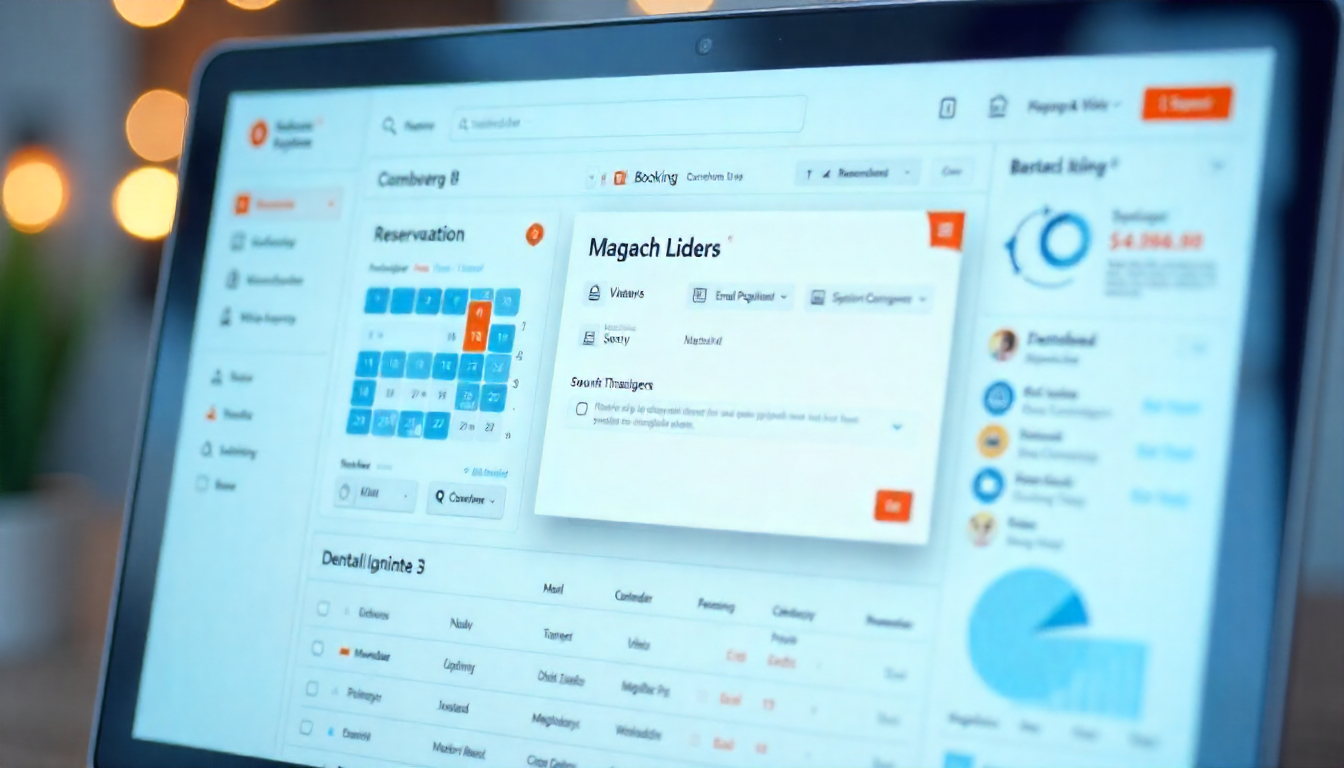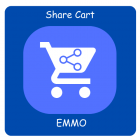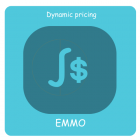Complete Guide: Booking and Reservation System in Magento 2

Complete Guide: Booking and Reservation System in Magento 2
Creating a booking and reservation system in Magento 2 allows businesses to sell services, appointments, rentals, and time-based products. This comprehensive guide covers various approaches from built-in features to custom development solutions.
Table Of Content
- Understanding Magento 2 Booking Requirements
- Method 1: Using Magento 2 Native Features
- Method 2: Third-Party Extensions
- Method 3: Custom Module Development
- Frontend Implementation
- Backend Administration
- Payment Integration and Financial Management
- Email and Notification System
- Security and Data Protection
- Conclusion
- FAQs
Understanding Magento 2 Booking Requirements
Before implementing a booking system, it's essential to understand the different types of booking scenarios and their technical requirements. The complexity of your booking system will largely depend on the type of business you're running and the specific features you need.
| Booking Type | Description | Key Features | Complexity Level |
|---|---|---|---|
| Simple Appointments | Fixed time slots for services | Time selection, calendar view | Low |
| Resource Booking | Equipment/room reservations | Resource availability, conflict prevention | Medium |
| Event Tickets | Time-specific event bookings | Seat selection, capacity limits | Medium |
| Rental Products | Daily/hourly product rentals | Duration selection, pricing tiers | High |
| Multi-day Bookings | Hotel/vacation rentals | Check-in/out dates, seasonal pricing | High |
When planning your booking system, consider factors such as your business model, customer expectations, integration requirements, and long-term scalability needs. A simple appointment booking system for a salon will have vastly different requirements compared to a complex equipment rental platform or event management system.
Method 1: Using Magento 2 Native Features
Magento 2 provides some built-in functionality that can be extended for basic booking scenarios. While this approach has limitations, it can be sufficient for simple use cases and provides a cost-effective starting point.
Magento 2 provides some built-in functionality that can be extended for basic booking scenarios.
Configurable Products Approach
The most straightforward way to implement basic booking using native Magento features is through configurable products. This method treats each time slot or booking option as a separate simple product, with the main booking service acting as a configurable product container.
| Component | Configuration | Purpose | Limitations |
|---|---|---|---|
| Configurable Product | Main booking service | Base product container | No calendar integration |
| Simple Products | Time slots/dates | Individual bookable options | Manual creation required |
| Custom Options | Additional services | Add-ons and extras | Limited validation |
| Inventory Management | Stock levels | Availability control | Basic stock tracking only |
You can create a main "Booking Service" as a configurable product, then add individual time slots as associated simple products. Each simple product represents a specific date and time combination, with its own SKU, price, and inventory level. When customers select their preferred time slot, they're actually choosing a specific simple product.
Implementation Steps
// Example: Creating time slot options programmatically
$product = $this->productFactory->create();
$product->setTypeId(\Magento\Catalog\Model\Product\Type::TYPE_SIMPLE)
->setAttributeSetId(4)
->setName('Booking Slot - 2:00 PM')
->setSku('booking-slot-1400')
->setStatus(\Magento\Catalog\Model\Product\Attribute\Source\Status::STATUS_ENABLED)
->setVisibility(\Magento\Catalog\Model\Product\Visibility::VISIBILITY_NOT_VISIBLE)
->setPrice(50.00)
->setStockData([
'use_config_manage_stock' => 1,
'qty' => 1,
'is_in_stock' => 1
]);
The main limitation of this approach is the lack of calendar integration and the manual effort required to create and manage time slots. Additionally, you'll need to develop custom logic for handling availability, preventing double bookings, and managing recurring appointments.
Method 2: Third-Party Extensions
Several commercial extensions provide comprehensive booking functionality with minimal development effort. These solutions offer pre-built features, tested functionality, and ongoing support, making them attractive for businesses that need to launch quickly.
| Extension | Features | Pricing Model | Best For |
|---|---|---|---|
| Amasty Booking | Calendar UI, recurring bookings, deposits | One-time license | Service appointments |
| Mageworx Advanced Product Options | Time slots, date picker, custom fields | Subscription | Complex bookings |
| Aheadworks Event Tickets | Event management, seat selection | One-time license | Event bookings |
| Mageplaza Booking Extension | Multi-calendar, staff management | One-time license | Service businesses |
| BSS Booking Extension | Resource management, availability calendar | One-time license | Equipment rentals |
Popular Booking Extensions
Amasty Booking Extension stands out as one of the most comprehensive solutions available. It provides a complete booking management system with calendar interfaces, recurring appointments, deposit handling, and email notifications. The extension integrates seamlessly with Magento's checkout process and supports multiple payment methods.
Mageworx Advanced Product Options takes a different approach by enhancing Magento's product options system. While not specifically designed for bookings, it provides powerful customization capabilities that can be configured for appointment scheduling, time slot selection, and complex booking scenarios.
Mageplaza Booking Extension focuses on service businesses and includes features like staff management, multi-calendar support, and resource allocation. It's particularly well-suited for businesses that need to manage multiple service providers or locations.
Extension Comparison Matrix
| Feature | Amasty | Mageworx | Aheadworks | Mageplaza | BSS |
|---|---|---|---|---|---|
| Calendar Interface | True | True | True | True | True |
| Recurring Bookings | True | False | False | True | True |
| Multi-resource Support | False | True | False | True | True |
| Payment Integration | True | True | True | True | True |
| Mobile Responsive | True | True | True | True | True |
| Email Notifications | True | True | True | True | True |
Implementation Considerations
When implementing third-party extensions, it's crucial to evaluate how well they integrate with your existing Magento setup. Check compatibility with your current theme, other extensions, and custom functionality. Most reputable extension providers offer demo installations where you can test functionality before purchasing.
Consider the learning curve for your team and the level of customization you'll need. Some extensions offer extensive configuration options but may require significant setup time, while others provide quick deployment with limited customization possibilities.
Method 3: Custom Module Development
For unique requirements or complex booking scenarios, developing a custom booking module provides maximum flexibility and control. This approach allows you to create exactly the functionality you need while ensuring optimal performance and seamless integration with your existing systems.
Database Schema Design
A well-designed database schema is the foundation of any successful booking system. The core tables should handle products, availability, reservations, and pricing efficiently while maintaining data integrity and supporting future enhancements.
| Table Name | Purpose | Key Fields | Relationships |
|---|---|---|---|
| booking_products | Booking-enabled products | product_id, booking_type, duration_type | Links to catalog_product_entity |
| booking_slots | Available time slots | slot_id, product_id, start_time, end_time, capacity | Links to booking_products |
| booking_reservations | Customer bookings | reservation_id, customer_id, slot_id, status | Links to customer_entity & booking_slots |
| booking_resources | Bookable resources | resource_id, name, capacity, availability_rules | Standalone resource management |
| booking_pricing | Dynamic pricing rules | price_id, product_id, date_range, price_modifier | Links to booking_products |
The booking_products table extends the standard product catalog to include booking-specific configuration. This includes settings like booking type (appointment, rental, event), duration constraints, advance booking limits, and cancellation policies.
The booking_slots table manages availability by storing specific time periods when services or resources are available. This table supports capacity management, allowing multiple bookings for the same time slot when appropriate (like group classes or multiple equipment units).
Module Structure
| Component | File Path | Responsibility | Dependencies |
|---|---|---|---|
| Module Registration | registration.php |
Register module with Magento | Core framework |
| Module Configuration | etc/module.xml |
Define module metadata | None |
| Database Schema | Setup/InstallSchema.php |
Create booking tables | Setup framework |
| Models | Model/Booking.php |
Business logic | AbstractModel |
| Resource Models | Model/ResourceModel/ |
Database operations | AbstractDb |
| Controllers | Controller/Booking/ |
Handle requests | Action class |
| Block Classes | Block/Booking/ |
Prepare data for templates | Template class |
| Templates | view/frontend/templates/ |
Display booking interface | Block classes |
Module Architecture
A well-structured booking module follows Magento's architectural patterns while providing the flexibility needed for complex booking scenarios. The module should include dedicated models for business logic, resource models for database operations, and controllers for handling customer interactions.
The core booking model should handle reservation logic, availability checking, conflict resolution, and business rule enforcement. This model acts as the central hub for all booking-related operations and ensures data consistency across the system.
Resource models provide an abstraction layer for database operations, handling complex queries for availability checking, reservation management, and reporting. These models should be optimized for performance, especially for availability queries that may be called frequently.
Controllers handle customer-facing operations like viewing availability, making reservations, and managing existing bookings. These controllers should provide both web interface support and API endpoints for mobile applications or third-party integrations.
Key Development Components
| Component | Implementation Details | Code Example |
|---|---|---|
| Product Type | Custom product type | for |
| Widget | JavaScript calendar component | jQuery UI Datepicker or custom React component |
| Availability Check | Real-time slot validation | AJAX endpoint with conflict detection |
| Pricing Calculator | Dynamic price computation | Observer pattern for price events |
| Email Notifications | Booking confirmations | Email template system |
Frontend Implementation
Creating an intuitive booking interface is crucial for user experience and conversion rates.The booking calendar is often the centerpiece of your customer interface. It should provide clear visual feedback about availability, pricing variations, and booking constraints. Consider implementing features like:
Calendar Interface Requirements
The booking calendar is often the centerpiece of your customer interface. It should provide clear visual feedback about availability, pricing variations, and booking constraints. Consider implementing features like:
A responsive calendar widget that works well on both desktop and mobile devices. The calendar should clearly distinguish between available, unavailable, and partially available dates. Use color coding and iconography to convey information quickly.
| Feature | Implementation | User Benefit | Technical Notes |
|---|---|---|---|
| Date Selection | Interactive calendar widget | Visual date picking | Disable unavailable dates |
| Time Slot Display | Grid or list view | Clear availability | Real-time updates |
| Duration Selection | Dropdown or slider | Flexible booking lengths | Price updates |
| Resource Selection | Filterable list | Choose specific resources | Availability filtering |
| Booking Summary | Sidebar widget | Review before purchase | Dynamic price calculation |
Real-time availability updates ensure customers see current information without manual page refreshes. Implement AJAX-based availability checking that updates as customers navigate between dates or modify their selection criteria.
JavaScript Implementation
Modern booking interfaces rely heavily on JavaScript for smooth user interactions. Here's an example of a basic booking calendar implementation:
// Example: Booking calendar initialization
class BookingCalendar {
constructor(productId, config) {
this.productId = productId;
this.config = config;
this.selectedDate = null;
this.selectedSlot = null;
this.initCalendar();
}
initCalendar() {
$('#booking-calendar').datepicker({
minDate: 0,
beforeShowDay: this.checkAvailability.bind(this),
onSelect: this.onDateSelect.bind(this)
});
}
checkAvailability(date) {
// AJAX call to check slot availability
return [true, 'available', 'Available'];
}
}
This implementation provides a foundation for interactive booking calendars while maintaining good performance through caching and efficient API calls.
Tip
To enhance your eCommerce store’s performance with Magento, focus on optimizing site speed by utilizing Emmo themes and extensions. These tools are designed for efficiency, ensuring your website loads quickly and provides a smooth user experience. Start leveraging Emmo's powerful solutions today to boost customer satisfaction and drive sales!
Backend Administration
Comprehensive admin interfaces enable efficient booking management and business operations. The admin panel should provide tools for managing bookings, configuring availability, handling customer communications, and generating reports.
Dashboard and Analytics
A well-designed booking dashboard provides at-a-glance insights into business performance. Include key metrics like daily bookings, revenue trends, popular time slots, and resource utilization rates. Visual charts and graphs help administrators quickly identify trends and make informed decisions.
The dashboard should also highlight items requiring immediate attention, such as pending bookings, cancellation requests, or overbooked time slots. Implement notification systems that alert administrators to important events via email or in-system messages.
Admin Panel Features
| Section | Functionality | Access Level | Key Features |
|---|---|---|---|
| Booking Dashboard | Overview and analytics | Admin/Manager | Revenue charts, booking trends |
| Calendar Management | View/edit bookings | Admin/Staff | Drag-drop scheduling |
| Resource Management | Configure bookable items | Admin | Capacity, pricing, availability |
| Customer Management | View customer bookings | Admin/Staff | Booking history, modifications |
| Reporting | Business intelligence | Admin | Revenue, utilization, trends |
Calendar Management
The admin calendar interface should provide comprehensive booking management capabilities. Administrators need to view bookings across different time periods, manage availability, handle booking modifications, and resolve conflicts.
Implement drag-and-drop functionality for easy booking rescheduling, bulk operations for managing multiple bookings simultaneously, and quick access to customer information and booking details. The interface should support multiple view modes (day, week, month) to accommodate different management styles and business needs.
Payment Integration and Financial Management
Booking systems often require specialized payment handling for deposits, cancellations, and refunds. The financial aspects of booking management can be complex, requiring careful consideration of payment timing, refund policies, and revenue recognition.
Payment Flow Design
Design your payment flow to match your business model and customer expectations. Some businesses require full payment upfront, while others work with deposits or allow payment at the time of service. Your booking system should support flexible payment options while maintaining financial control.
For deposit-based bookings, implement automatic balance collection systems that remind customers of outstanding payments and provide convenient payment methods. Consider integrating with recurring payment services for businesses that offer subscription-based bookings or payment plans.
Handle refunds and cancellations according to your business policies while maintaining clear audit trails. Implement automated refund processing where possible, but maintain manual override capabilities for exceptional circumstances.
Email and Notification System
Automated communications keep customers informed and reduce support overhead while building trust and professional credibility. A comprehensive notification system should handle booking confirmations, reminders, modifications, and cancellations.
Email Template Strategy
Develop a consistent email template system that reflects your brand while providing clear, actionable information. Templates should include:
Booking confirmation emails that provide complete reservation details, including service information, date and time, location, preparation instructions, and contact information. Include calendar attachments (iCal format) that customers can easily add to their personal calendars.
Reminder emails sent at appropriate intervals before the scheduled service. The timing depends on your business type – medical appointments might need 24-hour reminders, while vacation rentals might send reminders a week in advance.
Modification and cancellation emails that clearly explain changes and any financial implications. These emails should provide options for rebooking and include contact information for customer service.
Security and Data Protection
Booking systems handle sensitive customer and business data requiring robust security measures. Implement comprehensive security practices to protect customer information and maintain business reputation.
Data Security Framework
Implement encryption for sensitive data both in transit and at rest. Use SSL/TLS for all customer interactions and encrypt stored personal information, payment details, and booking records. Follow PCI DSS requirements if processing credit card information directly.
Implement role-based access controls that limit system access based on job responsibilities. Staff members should only access information necessary for their roles, and all system access should be logged and monitored.
Regular security audits and vulnerability assessments help identify potential weaknesses before they can be exploited. Implement automated monitoring systems that alert administrators to suspicious activity or potential security breaches.
Conclusion
Implementing a booking and reservation system in Magento 2 requires careful planning and consideration of business requirements, technical constraints, and user expectations. Whether using native features, third-party extensions, or custom development, success depends on understanding your specific needs and choosing the approach that best balances functionality, cost, and maintainability.
For simple appointment booking, third-party extensions provide quick implementation with proven functionality and ongoing support. For complex, industry-specific requirements, custom development offers maximum flexibility and control over features and performance.
FAQs
What is a booking and reservation system in Magento 2?
It’s a feature that allows customers to schedule services or reserve products directly from your Magento 2 store, including appointments, rentals, and more.
How do I enable booking functionality in Magento 2?
You need to install a booking/reservation extension or build custom functionality, then configure the product type to support bookings.
Can I set specific time slots for booking?
Yes, time slots can be defined per product/service with duration, availability windows, and buffer times between slots.
Does Magento 2 support calendar views for bookings?
Yes, most booking modules include a calendar UI to help customers visually select available dates and times.
Can I limit how far in advance customers can book?
Yes. Booking rules allow you to set minimum and maximum days in advance a customer can make a reservation.
Is it possible to require deposits or full payment?
Yes, you can set whether a booking requires a deposit or full payment to confirm the reservation at checkout.
Can customers cancel or reschedule their bookings?
Yes, if enabled. You can configure cancellation/rescheduling policies with time limits and fees if needed.
How are bookings managed in the admin panel?
Admins can view, modify, or cancel bookings via a dedicated bookings grid or under individual product and customer views.
Can I offer both products and services in one Magento 2 store?
Absolutely. Magento 2 supports multiple product types, including booking-enabled products alongside physical goods.
Do I need a custom theme for booking systems?
No, but theme compatibility is important. Many extensions work well with Hyvä, Luma, and custom themes.
Can I integrate the booking calendar with Google Calendar?
Some extensions support Google Calendar sync, allowing admins or customers to view bookings in external calendars.
Does Magento 2 booking support multi-language stores?
Yes. Booking features can be translated using Magento’s i18n capabilities and translation CSV files.
How are booking confirmation emails sent?
Notification settings include email templates that are triggered after a successful booking or change request.
Can I customize booking email templates?
Yes. Magento's transactional email system allows full customization of booking confirmation, reminder, and cancellation emails.
Is the booking system mobile responsive?
Yes. Most modern booking extensions and themes are responsive and optimized for mobile devices.
Can I set different prices for different time slots?
Yes. Tiered pricing can be configured based on date, time slot, or customer group to reflect demand or availability.
What happens if two customers try to book the same slot?
Slot locking and real-time availability checks prevent double bookings by reserving the slot during checkout.
Is there reporting available for bookings?
Yes. You can access reports on booking trends, revenue, customer preferences, and calendar utilization from the admin panel.
Can I disable bookings for holidays?
Yes. Unavailable dates like holidays or maintenance windows can be blocked from the calendar.
Do I need developer skills to set up a booking system?
No. Most booking extensions come with user-friendly configuration panels. However, advanced customization may require developer input.









